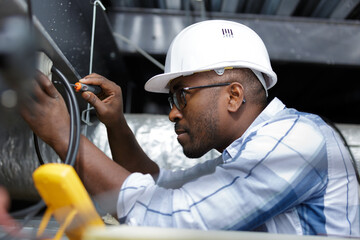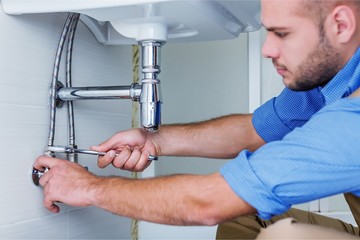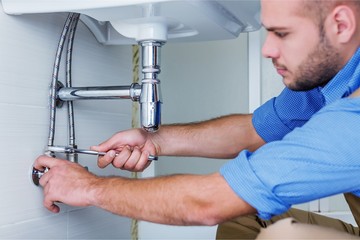If you need an emergency electrician, it is best to call a company that offers 24-hour service. Electrician West Hartford is equipped to handle all your electrical needs, from tripping circuit breakers to flickering lights. They can also help you learn more about carbon monoxide poisoning and help you avoid electrical fires in your home.

If you are experiencing a buzzing or humming noise in your home, you need to investigate what is causing it. A loose connection or a malfunctioning circuit breaker can cause it. Here are some tips to help you pinpoint the source. One of the best ways to find the source of an electrical hum is to get a good condenser microphone. This should amplify the hum and show you where it is coming from.
Another option is to use a stethoscope to listen to the buzzing. You can also find the source using a rolled-up piece of paper. An electrical humming sound is not only annoying but can also be dangerous. If it persists, you should call an electrician to address the issue. They can replace or fix the wiring, which may be causing the hum.
If you are having trouble with flickering lights, contact an emergency electrician. While you might think that your lights are old and faulty, they could be a sign of a more serious issue.
During peak demand periods in your neighborhood, your electrical system may experience power surges. These voltage fluctuations can damage your electronics and even lead to fires. Fortunately, you can have the electrical panel and wires checked by an emergency electrician.
Flickering lights can be caused by many factors, including faulty light bulbs, electrical arcing, and a faulty lamp wire. However, you don’t always need an emergency electrician to fix your problem. Sometimes, just a simple bulb change can solve the issue.
It is important to note that flickering lights can also be a sign of a more serious electrical problem, such as a tripped circuit breaker or a faulty electrical panel. Having your lights flicker can be very uncomfortable, and you should not feel embarrassed to call an emergency electrician if you are experiencing this problem.
Circuit breakers are a vital element in your home’s electrical system. They protect your appliances and equipment from dangerous temperatures and sparks. A tripped circuit breaker is a very serious hazard. It can leave your whole house in the dark. Whenever your circuit breakers are tripping, it’s a good idea to call a licensed electrician.
When your circuit breaker starts to trip, it’s a sign that you have an overloaded circuit. An overloaded circuit is one where the amount of electricity that is flowing through the wires is greater than the circuit can handle. You should unplug all the devices on your circuit to fix the problem and wait a few minutes.
You need to wait because the arc that forms when two different voltages meet is very hot. This can cause a burning smell and damage the wires.
Symptoms of CO poisoning include headaches, dizziness, nausea, confusion, and weakness. People who are at risk of CO poisoning should keep a close eye on their gas appliances, especially gas ranges and water heaters.
When a home has a gas oven, hot water heater, or gas furnace, it’s important to have them checked by a qualified technician. This is because these appliances can deplete the air’s oxygen supply, causing CO buildup.
The best way to prevent CO poisoning is to keep fuel-burning appliances well-maintained and avoid using them indoors. But even if you do use them outdoors, be sure to have them inspected by a licensed technician at least once a year.
There are a variety of factors that can cause electrical fires, and preventing them is a top priority. The good news is, there are a few simple steps you can take to protect yourself from them.
First, check your wiring. Damaged or old cords can easily lead to an electrical fire. Also, consider purchasing a surge protector. This device will prevent your electronics from overheating.
Second, unplug anything you aren’t using. If you have space heaters, be sure to turn them off as soon as you are out of the room.
Finally, make sure you have a good smoke alarm system. Having working smoke detectors on each floor of your home will help you detect any electrical fire before it has a chance to start.



